
Almost every organ in the body can be affected by cancer. It is a general fact that if this vicious disease is diagnosed on time, in initial stage, it can be completely cured. However, since cancers generally cause some symptoms and signs only when they grow to certain size or even spread to nearby or distant organs, in many cases the disease is diagnosed once it has advanced. Unfortunately, this is most commonly the case with colon cancer. On the other hand, it may be possible to detect colon cancer thanks to some screening methods such as colonoscopy and a fecal occult bleeding test. Also there may be some signs of early colon cancer that may drive an individual to seek medical attention. All in all, the results of treatment are best if the diseases are caught on time.
Colon Cancer
Colon cancer, also known as colorectal cancer, affects the large intestine or the rectum. The tumor affects different parts of the large intestine such as the cecum, ascending colon, transverse colon, descending colon or sigmoid colon. This malignant disease occurs in both genders and is one of the leading causes of death all around the world. Even though certain people have genetic predisposition for colorectal cancer, the tumor may also affect people with no familial history of the disease.
Early Signs of Colon Cancer
The earliest sign of colon cancer is actually a formation of a polyp inside the large intestine. Some polyps remain benign while others have tendency to transform into a cancer. If these growths are found on time and surgically removed, one will not end up with a colon cancer. However, if they remain undiagnosed they may eventually transform, develop into a cancer and growth further causing many health problems and finally death.
Once the tumor reaches certain size the person may experience the following symptoms and signs:
changes in bowel movement (diarrhea or constipation, or a mixture of the two)changes in the appearance of the stoolnausea/vomitingbloating/flatulencebloody stoolsabdominal pain/discomfort or crampsjaundiceanemiabowel obstructionfatigueHowever, even if some of the mentioned occurs, negligence may allow the tumor to grow even bigger or spread to nearby or even distant organs.
Colon Cancer Screening
Fecal occult blood tests and flexible sigmoidoscopic examination are recommended screening tests for people who are at risk to develop colon/colorectal cancer as well as those who have already been diagnosed with colorectal polyps or cancers. These are rather efficient in identifying precancerous polyps or even detect early colon cancers. The tests are not expensive and are easy to perform. But there is only one problem, they are not routinely performed in healthy individuals with no positive family history of colon cancer.


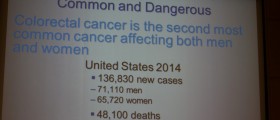
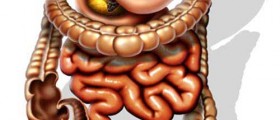
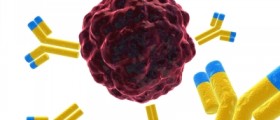



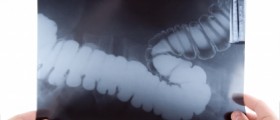




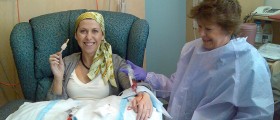



Your thoughts on this
Loading...